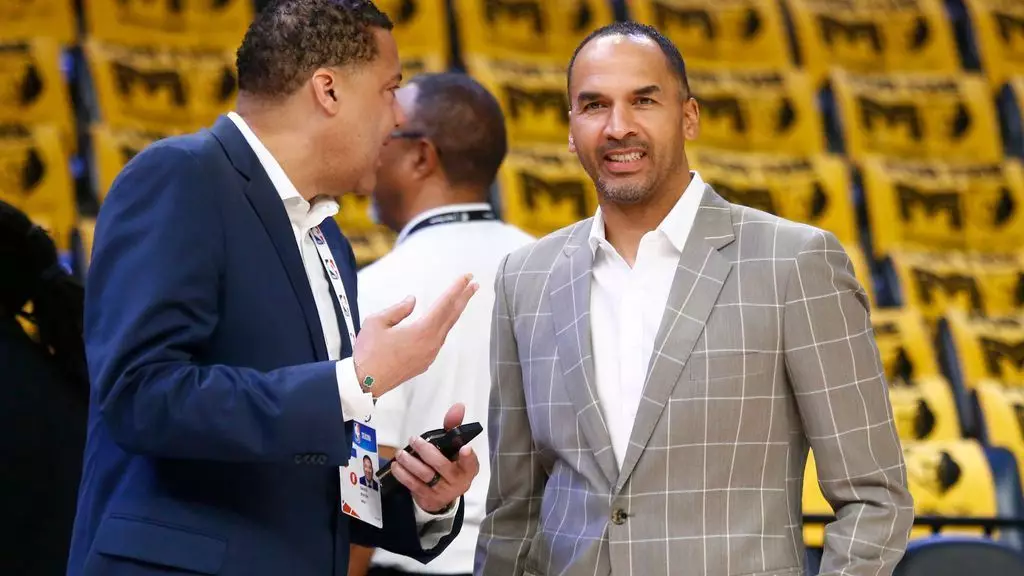In a move that sent shockwaves through the basketball community, Dallas Mavericks general manager Nico Harrison orchestrated a trade that many fans viewed as a betrayal rather than a strategic play. By sending Luka Doncic, the face of the franchise, to the Los Angeles Lakers in exchange for Anthony Davis, Harrison revealed a fundamental miscalculation regarding the depth of allegiance Mavericks fans have for their star player. The overwhelming reaction from fans, including calls for Harrison’s firing, illuminated a bitter divide between the management’s vision and the sentiments of a passionate fanbase.
Harrison’s admission that he underestimated Doncic’s impact on the Mavericks’ community points to a larger issue in professional sports: the often fragile relationship between management decisions and fan loyalty. Despite the objective reasoning that may have underpinned the trade—bolstering the Mavericks’ roster with a proven talent like Davis—the emotional toll taken on devoted supporters cannot be ignored. Harrison’s ultimate belief that the trade was a necessary gamble for a championship contender stands as a testament to the complexities of team-building in the NBA, but it also raises questions about whether such decisions can truly align with a fanbase’s expectations.
The Unfortunate Chain of Events
The aftermath of the trade has been riddled with injuries and missed opportunities. Harrison expected that the new lineup, featuring Davis alongside Kyrie Irving, Klay Thompson, P.J. Washington, and rising star Dereck Lively II, would realize its potential on the court and ultimately quell the discontent among fans. Instead, fate dealt the Mavericks a cruel hand: Davis suffered a groin injury shortly after joining the team, and Irving’s ACL tear compounded the team’s challenges.
This string of unfortunate events underscores the unpredictability of professional sports. Harrison’s assumption that immediate success would follow the new acquisitions faltered as key players found themselves sidelined. The contrast between planning and reality serves as a painful reminder that even well-intentioned gambles can backfire spectacularly. The Mavericks limped along, finally securing a play-in tournament spot only to be ousted by the Memphis Grizzlies, leaving fans in a state of disbelief and disappointment.
Looking Ahead: A Call for Healing and Unity
As the Mavericks look toward the next season, Harrison’s vision for a rejuvenated, championship-caliber team teeters precariously on the health of its stars. His confident assertion that a healthy return of key players like Kyrie Irving could turn fortunes around feels equally hopeful and naïve, given the recent injury history of the team’s core. The general manager’s focus on healing suggests a reliance on the intrinsic value of player potential rather than organic chemistry, raising the question of whether simply returning familiar faces will fulfill fans’ expectations or if new strategies are necessary.
Drawing from Harrison’s optimism regarding the 11th pick in the upcoming draft, there’s potential for the Mavericks to inject fresh talent into a fractured roster. Yet, relying solely on new acquisitions might not suffice. The Mavericks must ask themselves: can they rebuild not only with new players but by fostering unity within the existing squad? It’s crucial to understand that chemistry and alignment within a team often outweigh raw talent alone.
A Fractured Relationship with Fans
The persistent dissent from the fan base signals a deeper issue that extends beyond mere roster changes. Fans are not just passive observers; they are stakeholders in their team’s identity. The disconnect between management’s bold moves and fan expectations raises significant concerns about how future transactions will be perceived. The Mavericks, once an emblem of hope and aspiration, now face the daunting task of mending a fractured relationship with supporters.
Harrison’s recognition of Doncic’s importance is a minor concession but lacks a plan to rebuild trust and confidence among passionate fans who feel overlooked. The task ahead is not merely about assembling a championship-caliber team; it also involves cultivating a sense of belonging for fans, emphasizing communication, and ensuring that they feel valued stakeholders in the Mavericks’ journey.
In the end, the Mavericks stand as a cautionary tale of the intricate dance between ambition and fan loyalty in professional sports, highlighting that winning—a shared dream for teams and their followers—requires more than just a powerful roster; it necessitates empathy, unity, and an engaging relationship with those who fill the stands to support their team through thick and thin.

